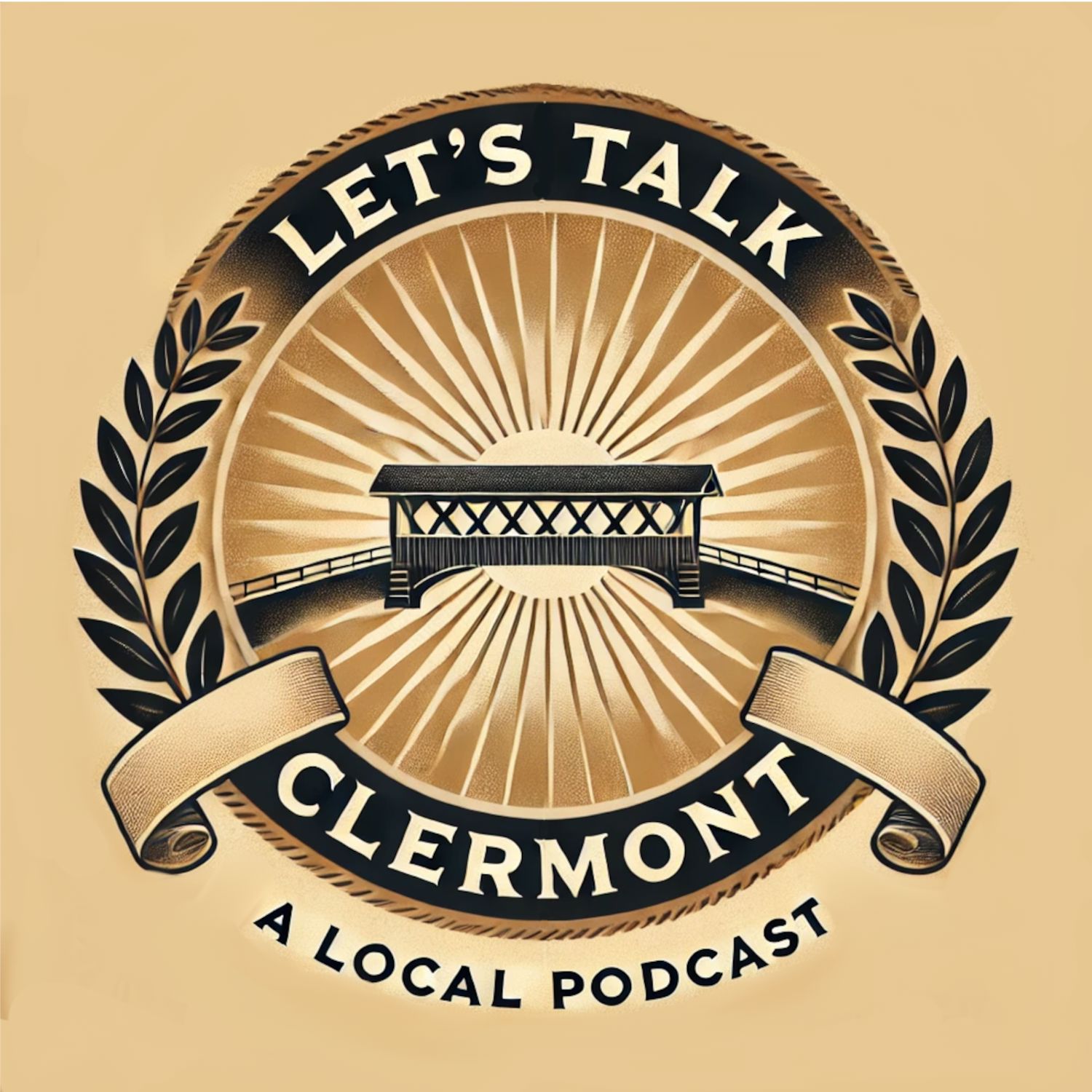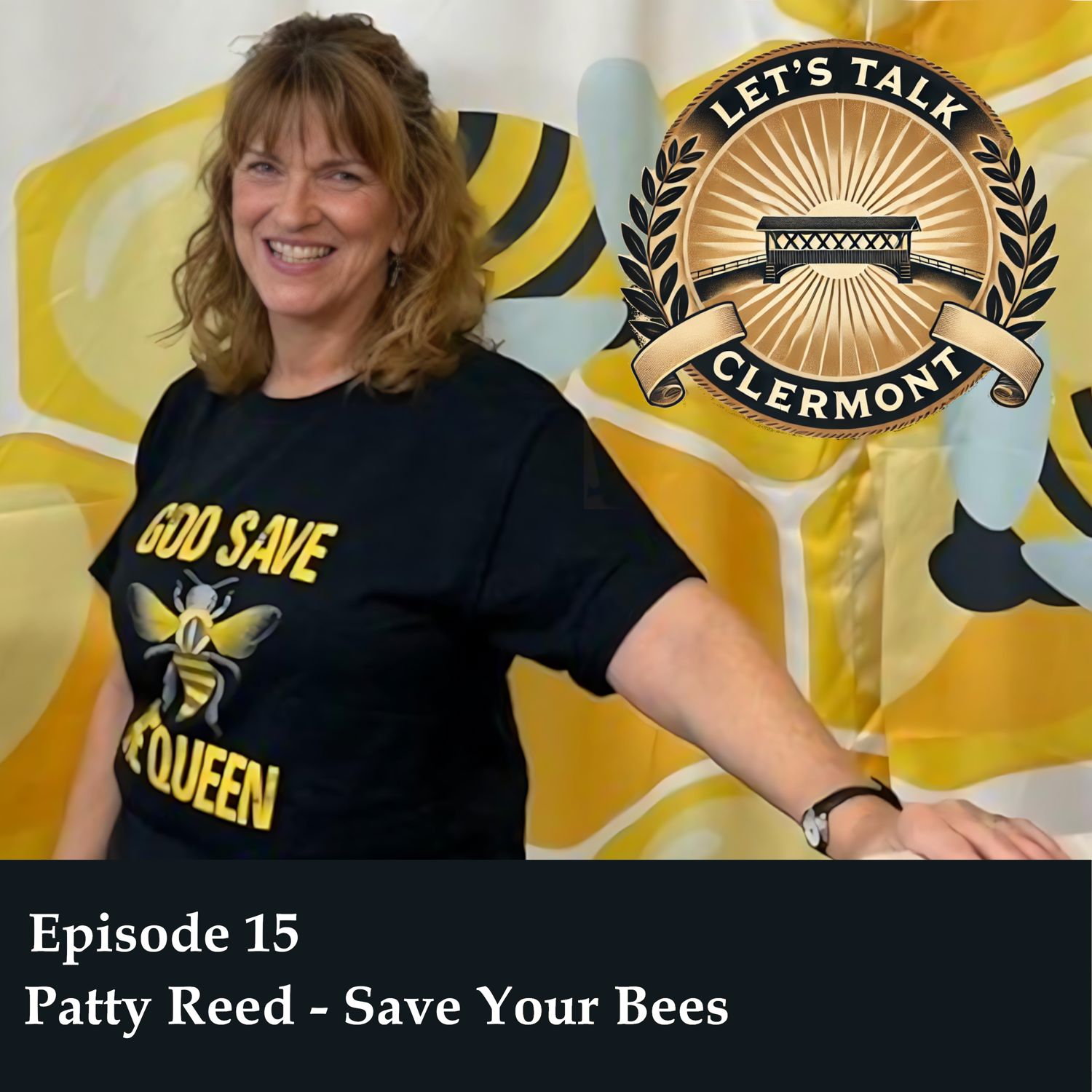Episode 15 of Let's Talk Clermont. We talk with Patty Reed, co-founder of Save Your Bees, about the world of beekeeping. We get into how her husband got started, what causes hives to swarm, and the challenges bees face today from mites to monoculture. There's also a honey tasting, swarm stories, and some surprising bee facts you won’t want to miss!

Let's Talk Clermont
News and Views for Clermont County, Ohio
Listen in your favorite app:
Fountain